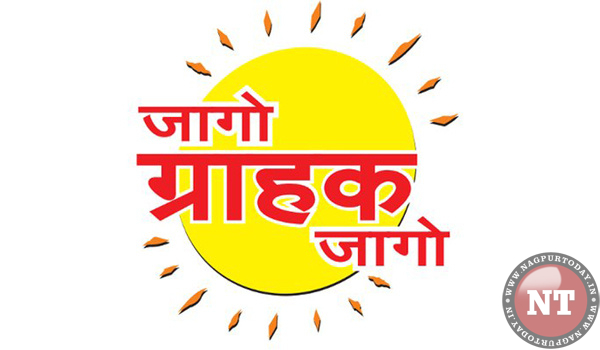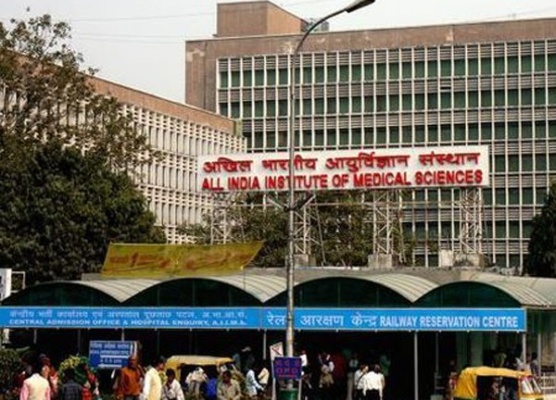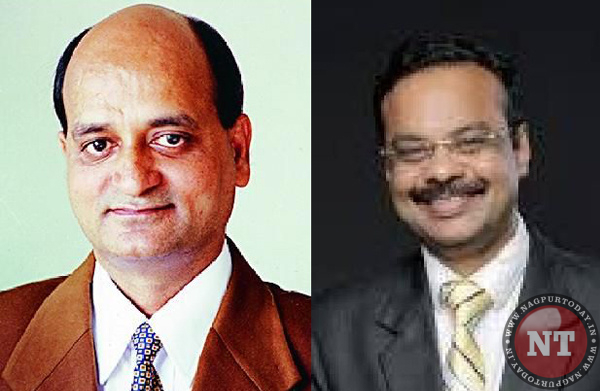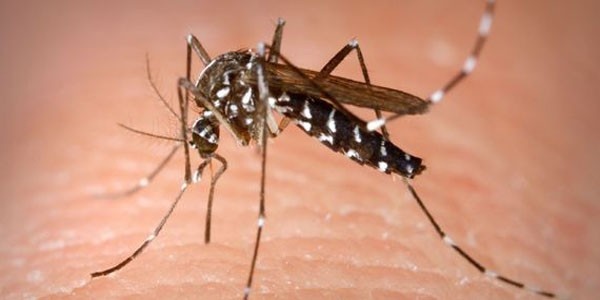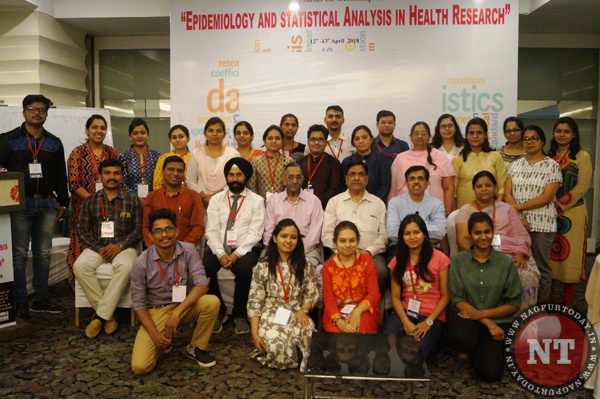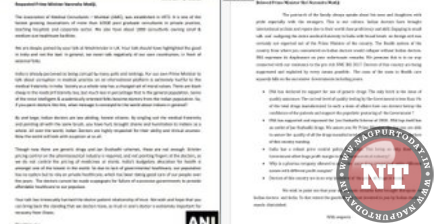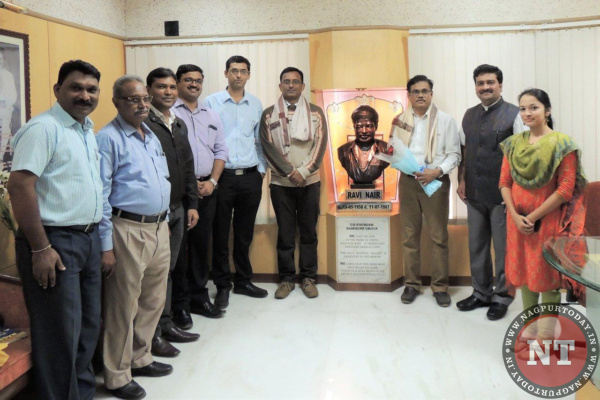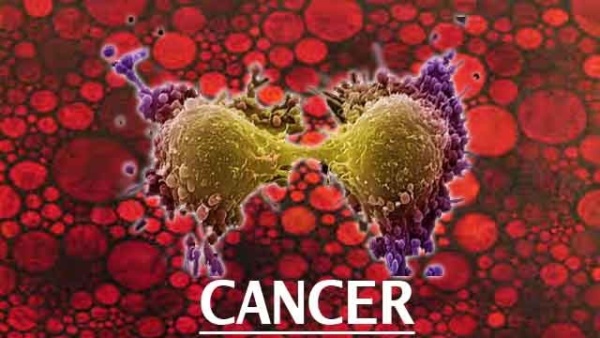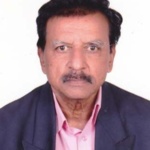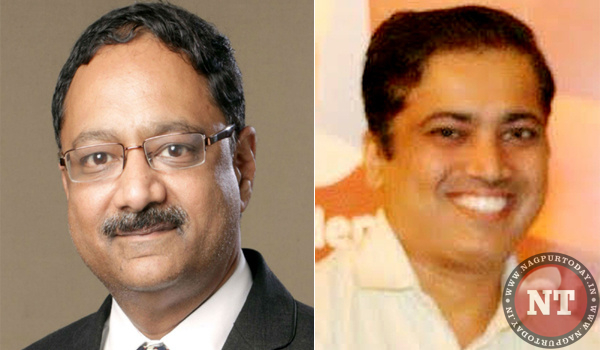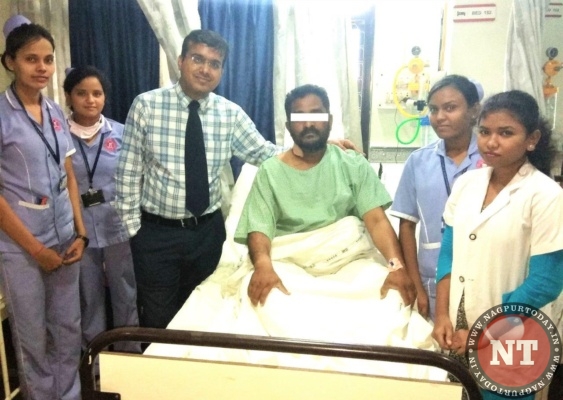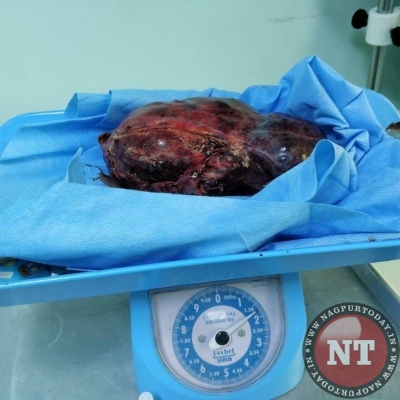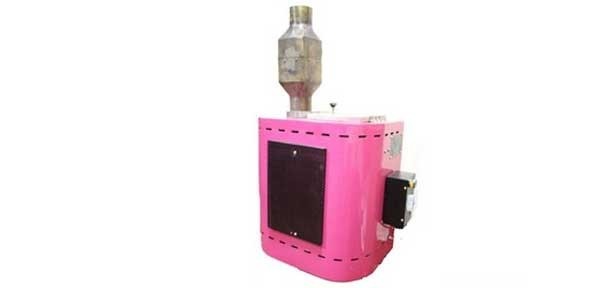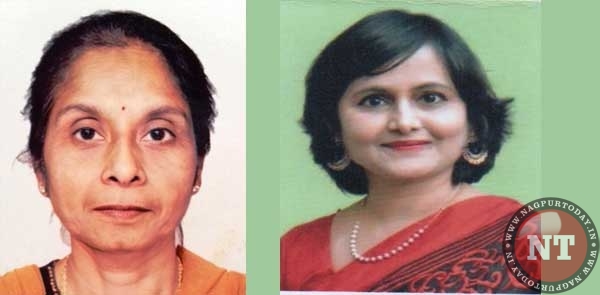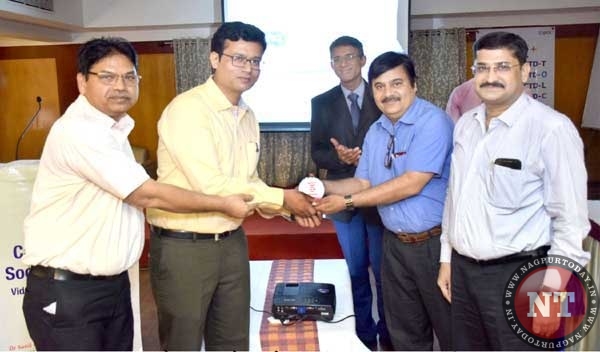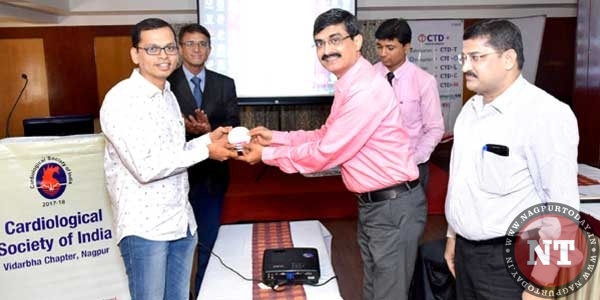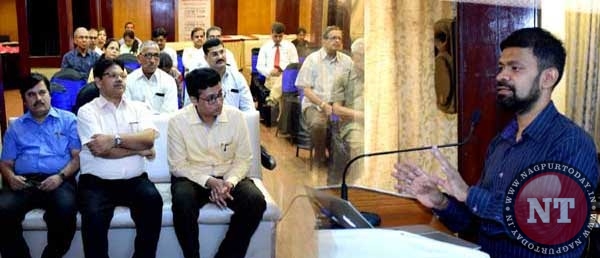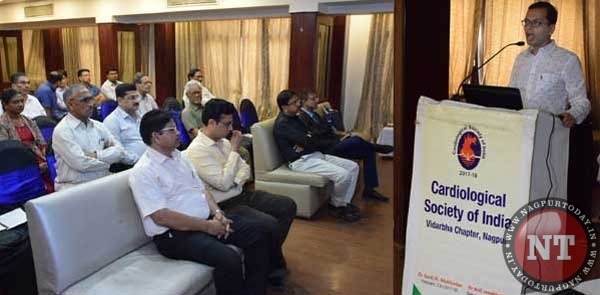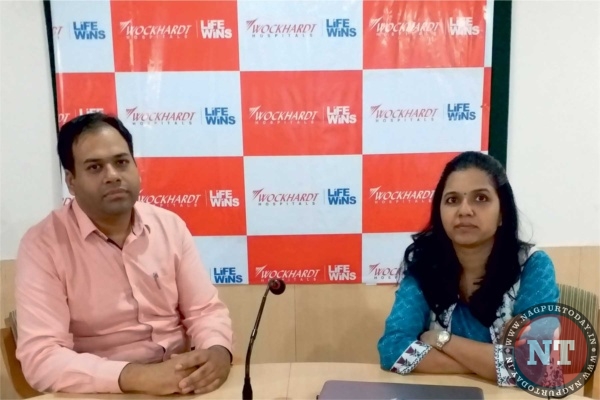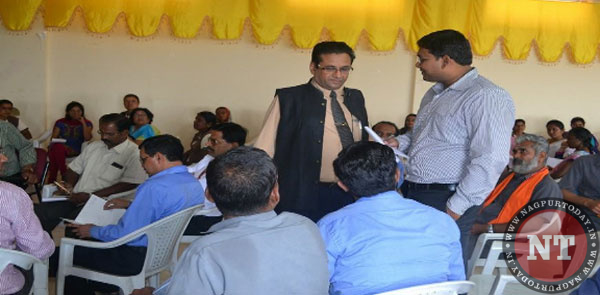Nagpur Today : Nagpur News
![Cancer in India]()
Representational Pic
Nagpur: Cancer can have profound social and economic consequences for people in India, often leading to family impoverishment and societal inequity. Reported age-adjusted incidence rates for cancer are still quite low in the demographically young country. Slightly more than 1 million new cases of cancer are diagnosed every year in a population of 1·2 billion. In age-adjusted terms this represents a combined male and female incidence of about a quarter of that recorded in western Europe. However, an estimated 600 000–700 000 deaths in India were caused by cancer in 2012. In age-standardised terms this figure is close to the mortality burden seen in high-income countries. Many cancer cases in India are associated with tobacco use, infections, and other avoidable causes. Social factors, especially inequalities, are major determinants of India’s cancer burden, with poorer people more likely to die from cancer before the age of 50 years than those who are more affluent.
Cancer Statistics in India (As given by National Institute of Cancer Prevention and Research)
One woman dies of cervical cancer every 8 minutes in India.
- For every 2 women newly diagnosed with breast cancer, one woman dies of it in India.
- As many as 2,500 persons die every day due to tobacco-related diseases in India.
- Smoking accounts for 1 in 5 deaths among men and 1 in 20 deaths among women, accounting for an estimated 9,30,000 deaths in 2010.
- Estimated number of people living with the disease: around 2.5 million
- Every year, new cancer patients registered: Over 7 lakh
- Cancer-related deaths: 5,56,400
Deaths in the age group between 30-69 years
- Total: 3,95,400 (71% of all cancer related deaths)
- Men: 2,00,100
- Women: 1,95,300
Cancers of oral cavity and lungs in males and cervix and breast in females account for over 50% of all cancer deaths in India.
The top five cancers in men and women account for 47.2% of all cancers; these cancers can be prevented, screened for and/or detected early and treated at an early stage. This could significantly reduce the death rate from these cancers. These are for men: 1) Lip, Oral Cavity, 2) Lung, 3) Stomach 4) Colorectum, 5) Pharynx. For women: 1) Breast, 2) Cervix, 3) Colorectum, 4) Ovary, 5) Lip, Oral cavity.
The incidence of cancer in India is much less when compared to the western countries. For example, U.S. men get 23 times more prostate cancer than men in India. Americans get between 8 and 14 times the rate of melanoma, 10 to 11 times more colorectal cancer, 9 times more endometrial cancer, 7 to 17 times more lung cancer, 7 to 8 times more bladder cancer, 5 times more breast cancer, and 9 to 12 times more kidney cancer. This is not mere 5, 10, or 20 percent more, but 5, 10, or 20 times more. Hundreds of percent more breast cancer, thousands of percent more prostate cancer.
Rise in Cancer in India. According to the National Cancer Registry Programme of the India Council of Medical Research (ICMR), more than 1300 Indians die every day due to cancer. Between 2012 and 2014, the mortality rate due to cancer increased by approximately 6%. In 2012, there were 4,78,180 deaths out of 2934,314 cases reported. In 2013 there were 465,169 death out of 3016,628 cases. In 2014, 491,598 people died out of 2820,179 cases. As per Population Cancer Registry of Indian Council of Medical Research, the incidence and mortality of cancer is highest in the North Eastern region of the country. Breast cancer is the most common one, with Stomach cancer the leading cause of death by cancer for the population as a whole. Breast cancer and Lung cancer kill the most women and men respectively. Generally, worldwide trends show that in developing countries going through rapid societal and economic changes, the shift towards lifestyles typical of industrialized countries leads to a rising burden of cancers associated with reproductive, dietary, and hormonal risk factors.
The worldwide incidence of cancer. According to GLOBOCAN 2012 (A website of International Agency for Research on Cancer (IARC)), an estimated 14.1 million new cancer cases and 8.2 million cancer-related deaths occurred in 2012, compared with 12.7 million and 7.6 million, respectively, in 2008.
The most commonly diagnosed cancers worldwide were those of the lung (1.8 million, 13.0% of the total), breast (1.7 million, 11.9%), and colorectum (1.4 million, 9.7%). The most common causes of cancer death were cancers of the lung (1.6 million, 19.4% of the total), liver (0.8 million, 9.1%), and stomach (0.7 million, 8.8%).
![]()
Y Udaya Chandar
Projections based on the GLOBOCAN 2012 estimates predict a substantive increase to 19.3 million new cancer cases per year by 2025, due to growth and ageing of the global population. More than half of all cancers (56.8%) and cancer deaths (64.9%) in 2012 occurred in less developed regions of the world, and these proportions will increase further by 2025.
In 2012, 1.7 million women were diagnosed with breast cancer and there were 6.3 million women alive who had been diagnosed with breast cancer in the previous five years. Since the 2008 estimates, breast cancer incidence has increased by more than 20%, while mortality has increased by 14%. Breast cancer is the most frequently diagnosed cancer among women in 140 of 184 countries worldwide. It now represents one in four of all cancers in women.
“Breast cancer is also a leading cause of cancer death in the less developed countries of the world. This is partly because a shift in lifestyles is causing an increase in incidence, and partly because clinical advances to combat the disease are not reaching women living in these regions,” says Dr David Forman, Head of the IARC Section of Cancer Information, the group that compiles the global cancer data.
Incidence has been increasing in most regions of the world, but there are huge inequalities between rich and poor countries. Incidence rates remain highest in more developed regions, but mortality is relatively much higher in less developed countries due to a lack of early detection and access to treatment facilities. For example, in western Europe, breast cancer incidence has reached more than 90 new cases per 100 000 women annually, compared with 30 per 100 000 in eastern Africa. In contrast, breast cancer mortality rates in these two regions are almost identical, at about 15 per 100 000, which clearly points to a later diagnosis and much poorer survival in eastern Africa.
With 528 000 new cases every year, cervical cancer is the fourth most common cancer affecting women worldwide, after breast, colorectal, and lung cancers; it is most notable in the lower-resource countries of sub-Saharan Africa. It is also the fourth most common cause of cancer death (266 000 deaths in 2012) in women worldwide. Almost 70% of the global burden falls in areas with lower levels of development, and more than one fifth of all new cases are diagnosed in India.
In sub-Saharan Africa, 34.8 new cases of cervical cancer are diagnosed per 100 000 women annually, and 22.5 per 100 000 women die from the disease. These figures compare with 6.6 and 2.5 per 100 000 women, respectively, in North America. The drastic differences can be explained by lack of access to effective screening and to services that facilitate early detection and treatment.
The list below includes the most-studied known or suspected risk factors for cancer. Although some of these risk factors can be avoided, others — such as growing older — cannot. Limiting exposure to avoidable risk factors may lower your risk of developing certain cancers.
- Age
- Alcohol
- Cancer-Causing Substances in the environment
- Chronic Inflammation
- Diet
- Hormones
- Immuno suppression
- Infectious Agents
- Obesity
- Radiation
- Sunlight
- Tobacco
Global cancer burden climbed to 14.1 m new cases in 2012: Marked increase in breast cancers must be addressed.
Using the Global Burden of Disease (GBD) methodology, it has been estimated that in 2015, there were 17.5 million cancer cases, 8.7 million deaths, and 208.3 million DALYs. Between 2005 and 2015, incident cancer cases increased by 33%, of which 12.6% were due to population growth, 16.4% due to an aging population, and 4.1 % due to increasing age-specific incidence rates. Cancer control, which requires a detailed understanding of the cancer burden as provided in the GBD, is of utmost importance given the rise in cancer incidence due to epidemiological and demographic transition.
(The writer is a retired Colonel from the Indian Army. A passionate student of Sociology with a PhD in the subject. Author of many books.)
—Y Udaya Chandar
The Incidence of Cancer in India
